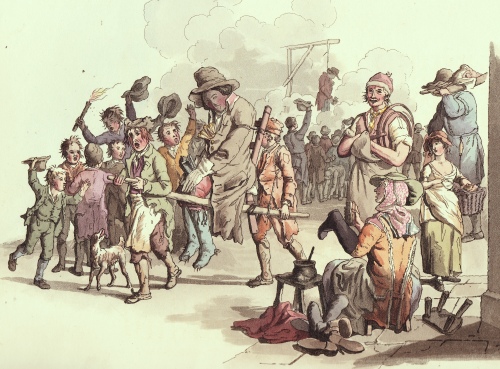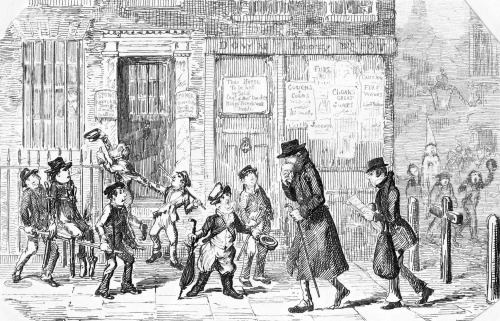I don’t usually host guest blogs, but I couldn’t resist sharing the research fellow historical novelist Joanna Maitland has done on travel by packet boat. There’s more about Joanna at the end of her post . Over to you, Joanna –
It’s 1811, it’s wartime (pesky Bonaparte), and you have to go on a sea voyage. To Buenos Aires. Perhaps you’ve been sent there, like Sir Horace in Georgette Heyer’s wonderful story The Grand Sophy, but, unlike Sir Horace, you don’t have the luxury of travelling in peacetime).
How do you go about it?
First you get yourself all the way down to Cornwall, probably by mail coach, unless you’re so rich you can afford to travel post. By mail coach, it will take you 18 hours from London to Exeter plus another 14 or so to Falmouth. Quite a trip and that’s only the start!
Packet ships carry the mail, and passengers, from Falmouth to all sorts of places. Buenos Aires is one of the routes they are offering.
Your trip to Buenos Aires is expected to take 35 days out (and 52 days back, assuming you make it there in the first place). Your passage will not be cheap. You can travel steerage for £46 but you probably won’t enjoy it. If you want the “luxury” of a private cabin, the price is £86 one way (and £107 to come back).
The ship is very small and the passenger cabins aren’t exactly spacious. That blacked-in space on the plan will be yours!
Cabins have no portholes and they open onto a communal dining room. You’ll need to open your door to the dining room if you want any natural light. If you prefer privacy, you’ll need to light your candle or feel your way around in the dark.
Facilities are somewhat basic, too (see below right), but at least you won’t have to provide your own food and you’ll even get to eat with the officers! You will have to provide your own bedding, though, part of your 400 lb baggage allowance. And on the way back, in spite of that hefty price hike, you will have to provide your own food as well.
During your 35-day voyage, you might have a run ashore at Madeira, but probably nowhere else, and you’ll have to take your exercise on the deck, trying to thread your way through the guns, and the ship’s boats, and the livestock (which you’ll be eating later). Remember, there’s to be absolutely no fraternising with the crew while you’re on deck. No climbing the rigging, either.
But, hang on, it’s wartime. What if your ship is attacked? What happens to you then? Just in case you’re wondering, these are your captain’s orders (and – sorry – they don’t mention you, the passenger, at all):
“You must run where you can.You must fight when you can no longer run and when you can fight no more you must sink the mails before you strike [your colours].”
So your ship will run from the enemy and you’ll get away, will you?
Well, you might. During the French wars, from 1793-1815, 68 packet ships were captured by enemy ships or by privateers. Three or four a year, on average. Since the total packet fleet in 1808 was only 39 ships, that’s OK-but-not-brilliant odds for your forthcoming trip. Still, some packet captains are stout fellows who are prepared to fight. Like Captain John Bull, shown here.
 Captain Bull’s packet ship, the Duke of Malborough (see below), did fight in 1814 off Cape Finistere against a privateer. Sadly, one passenger was a casualty. Even more sadly, it transpired that the attacking ship was not a privateer at all, but a ship of the Royal Navy! They do indeed call it the fog of war.
Captain Bull’s packet ship, the Duke of Malborough (see below), did fight in 1814 off Cape Finistere against a privateer. Sadly, one passenger was a casualty. Even more sadly, it transpired that the attacking ship was not a privateer at all, but a ship of the Royal Navy! They do indeed call it the fog of war.
Bon voyage, intrepid traveller!
All information and exhibits from the splendid displays at the The National Maritime Museum,
Joanna Maitland’s latest Regency ebook novella, His Silken Seduction , does not include a packet voyage but it does take readers as far as war-torn France and the excitement of Napoleon’s Hundred Days. It’s available for preorder at a special price until publication day.
 After many years publishing Regencies with Harlequin Mills & Boon, Joanna is very excited about branching out into new fields as an independent author with His Silken Seduction:
After many years publishing Regencies with Harlequin Mills & Boon, Joanna is very excited about branching out into new fields as an independent author with His Silken Seduction:  her second book will be a timeslip, Lady In Lace. Details of all her books are at Liberta Books the site that Joanna and fellow author Sophie Weston, Joanna have just set up. Here readers and writers can meet and share enthusiasms and Joanna hopes to welcome fans, old and new, and readers of all sorts of fiction to the website.
her second book will be a timeslip, Lady In Lace. Details of all her books are at Liberta Books the site that Joanna and fellow author Sophie Weston, Joanna have just set up. Here readers and writers can meet and share enthusiasms and Joanna hopes to welcome fans, old and new, and readers of all sorts of fiction to the website.








